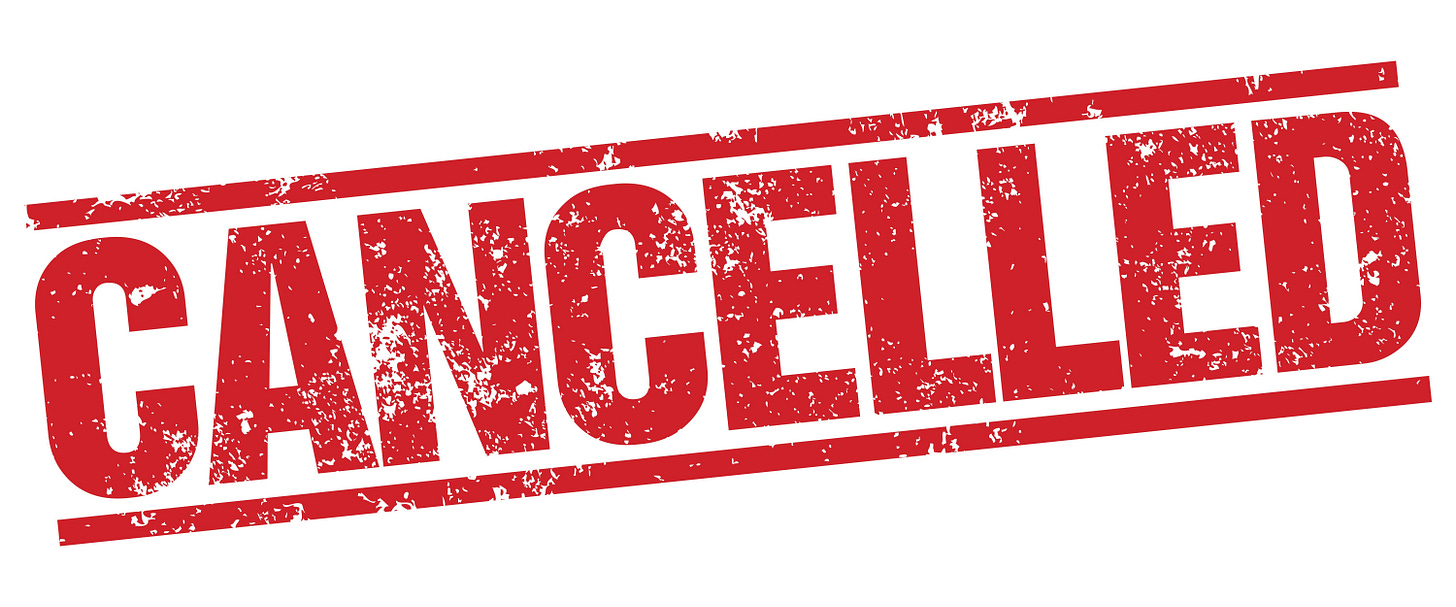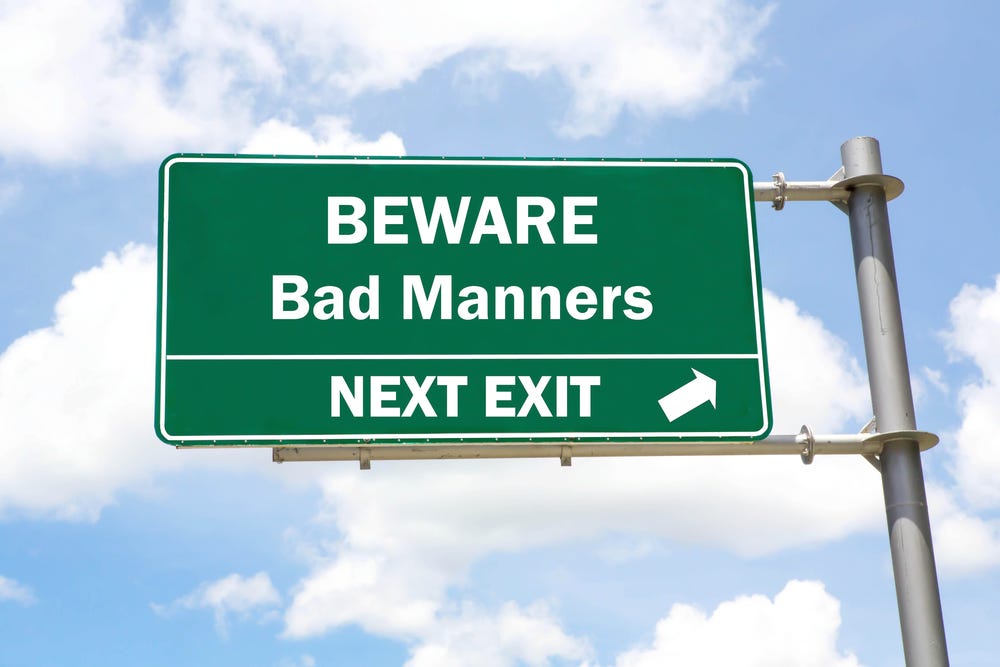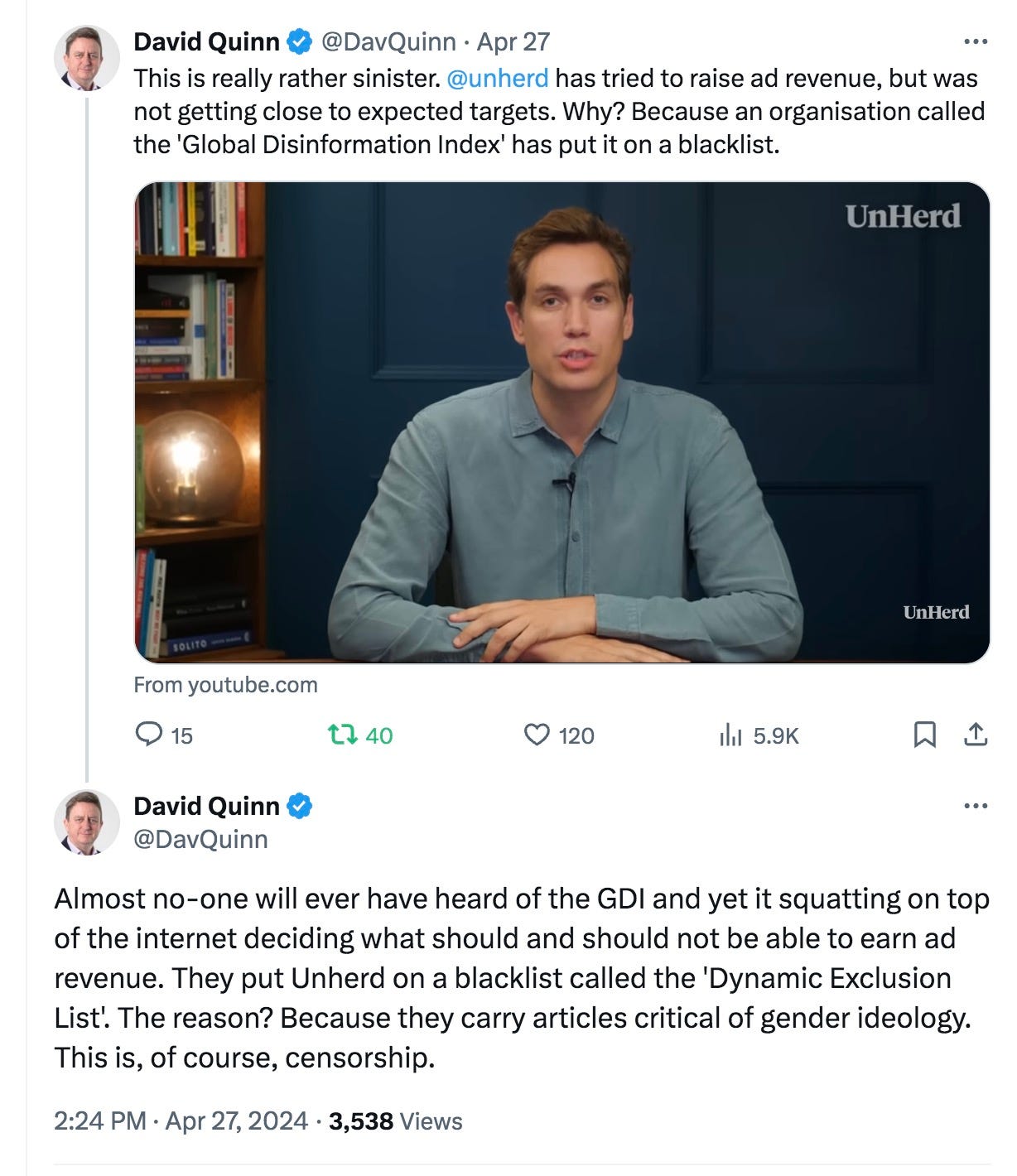E-Pluribus | April 29, 2024
Goodbye, higher education, hello, higher occupation; postcards from cancellation; and do we really need to mind our manners?
A round-up of the latest and best musings on the rise of illiberalism in the public discourse:
George Packer: The Campus-Left Occupation That Broke Higher Education
Already this spring, some universities are cancelling graduations because they’re overwhelmed by protests they cannot adequately control. At The Atlantic, George Packer argues that these schools have done it to themselves over the past half century with their post-liberal policies.
[T]he structure of protest reflects the nature of universities. They make good targets because of their abiding vulnerability: They can’t deal with coercion, including nonviolent disobedience. Either they overreact, giving the protesters a new cause and more allies (this happened in 1968, and again last week at Columbia), or they yield, giving the protesters a victory and inviting the next round of disruption. This is why Columbia’s president, Minouche Shafik, no matter what she does, finds herself hammered from the right by Republican politicians and from the left by her own faculty and students, unable to move without losing more ground. Her detractors know that they have her trapped by their willingness to make coercive demands: Do what we say or else we’ll destroy you and your university. They aren’t interested in a debate.
A university isn’t a state—it can’t simply impose its rules with force. It’s a special kind of community whose legitimacy depends on mutual recognition in a spirit of reason, openness, and tolerance. At the heart of this spirit is free speech, which means more than just chanting, but free speech can’t thrive in an atmosphere of constant harassment. When one faction or another violates this spirit, the whole university is weakened as if stricken with an illness. The sociologist Daniel Bell, who tried and failed to mediate a peaceful end to the Columbia occupation, wrote afterward:
In a community one cannot regain authority simply by asserting it, or by using force to suppress dissidents. Authority in this case is like respect. One can only earn the authority—the loyalty of one’s students—by going in and arguing with them, by engaging in full debate and, when the merits of proposed change are recognized, taking the necessary steps quickly enough to be convincing.
[. . .]
A long, intricate, but essentially unbroken line connects that rejection of the liberal university in 1968 to the orthodoxy on elite campuses today. The students of the ’68 revolt became professors—the German activist Rudi Dutschke called this strategy the “long march through the institutions”—bringing their revisionist thinking back to the universities they’d tried to upend. One leader of the Columbia takeover returned to chair the School of the Arts film program. “The ideas of one generation become the instincts of the next,” D. H. Lawrence wrote. Ideas born in the ’60s, subsequently refined and complicated by critical theory, postcolonial studies, and identity politics, are now so pervasive and unquestioned that they’ve become the instincts of students who are occupying their campuses today. Group identity assigns your place in a hierarchy of oppression. Between oppressor and oppressed, no room exists for complexity or ambiguity. Universal values such as free speech and individual equality only privilege the powerful. Words are violence. There’s nothing to debate.
The post-liberal university is defined by a combination of moneymaking and activism. Perhaps the biggest difference between 1968 and 2024 is that the ideas of a radical vanguard are now the instincts of entire universities—administrators, faculty, students. They’re enshrined in reading lists and codes of conduct and ubiquitous clichés. Last week an editorial in the Daily Spectator, the Columbia student newspaper, highlighted the irony of a university frantically trying to extricate itself from the implications of its own dogmas: “Why is the same university that capitalizes on the legacy of Edward Said and enshrines The Wretched of the Earth into its Core Curriculum so scared to speak about decolonization in practice?”
[. . .]
The right always knows how to exploit the excesses of the left. It happened in 1968, when the campus takeovers and the street battles between anti-war activists and cops at the Democratic convention in Chicago helped elect Richard Nixon. Republican politicians are already exploiting the chaos on campuses. This summer, the Democrats will gather again in Chicago, and the activists are promising a big show. Donald Trump will be watching.
Elite universities are caught in a trap of their own making, one that has been a long time coming. . .
Read it all here.
Ilya Shapiro: What to Do When You’re Canceled
Ilya Shapiro knows whereof he writes at City Journal. The reaction to Shapiro’s (“inartful”, his word) words about a potential Biden Supreme Court nominee plunged him into a cancellation odyssey the likes of which few experience. On the off chance that it happens to someone else, Shapiro maps out a plan for that unfortunate soul.
If you find yourself the target of a cancellation campaign, as I did two years ago. . .[w]hat follows is a guide for what to do if it happens to you.
The most important task when facing a cancellation campaign is to define your goals. Obviously, you want the mobbing to stop and for things to return to “normal.” But ask yourself what, specifically, that means. Do you want to keep your job? Get the position on the law review that you deserve? Become famous? Deter further publicity? Make money off an unexpected opportunity? Retain your reputation for integrity, intelligence, and friendliness? Your strategy will follow from your ultimate aim.
Locking down your message means articulating a cohesive and consistent response to the charges against you and providing the context that the mob maliciously ignores. Once you know your goals, you can form a plan for achieving them and think through contingencies based on different ways in which the cancellation attempt unfolds. Those aims will also determine the answer to such key questions as, “Should I apologize?” Any strategy needs to adapt as events develop, but an anti-cancellation plan should always maintain a focus on your goals.
Each cancellation is different, but some general lessons apply. Professors and students should concentrate on refusing to be silenced and on finding their true audience. Nobody has the power to silence you—that’s the mob’s goal—so you must keep talking, keep speaking the truth. Early on, you’ll need to craft a message that you’ll stick to throughout, something simple that flows logically from the strategy you’re pursuing. But while you’re talking, you must know your audience—and it’s not the extremist rabble-rouser. It’s the onlooker silently watching. It’s the administrator who would rather resolve the whole thing with minimum fuss.
[. . .]
Anyone facing cancellation will need friends, both to maintain perspective and sanity and to push back on the overwhelming wave of negativity that tends to materialize. Victims of higher-profile cancellations will need allies with public platforms: the Foundation for Individual Rights and Expression, the Academic Freedom Alliance, or notable people who have faced similar circumstances. I was able to connect Ohio Northern University law professor Scott Gerber—under fire from his school, purportedly for lack of collegiality but, more realistically, for his critical stance toward DEI—to the Wall Street Journal editorial page, whose publication of his op-ed spurred further publicity and froze ONU’s persecution of him in its tracks.
Publicity, in other words, can be worth seeking. The news cycle is head-spinningly short, as is the public’s attention span, so a social-media hiatus may allow time for the circus to move on to the next shiny thing. On the other hand, for a public figure to reenter the public sphere after such a blackout risks reigniting the controversy. For nonpublic figures, there’s safety in numbers: you don’t need to martyr yourself over every bit of craziness; just remember that you’re not alone. Banding together with like-minded others can be more effective in changing the narrative.
[. . .]
When someone tries to force you to apologize, without first convincing you that you made a mistake, don’t do it. People may convince you that you were wrong, but don’t let them bully you into caving in and denying what you still believe. To quote Aleksandr Solzhenitsyn, live not by lies.
Read the whole thing.
Addison del Mastro: Sacrifices to the Manners God
In a society that often demands total acceptance of individual preferences, traditional manners can end up collateral damage. Writing at Discourse Magazine, Addison del Mastro, while acknowledging the relatively trifling nature of specific customs, says that manners still serve a legitimate purpose that society as a whole is poorer without.
[I]n a certain sense, manners are religion. They are norms or customs which describe a polite way of doing something, and later become rules, and then after that approach doctrine. Whether they’re “real” in some sense doesn’t really matter. If manners did not exist, it would be necessary to invent them.
This, then, is to say that manners matter. You can shear off the air of mystery and cultural weight, and you don’t have to view transgressions as metaphysical offenses. . . But we do need a set of more or less agreed-upon behavioral norms. That’s what manners really are.
Which brings me to the pandemic and post-pandemic period. Whether it’s unruly or rude customers in restaurants or on airplanes, an increase in aggressive driving or a rise in petty crime, we’ve all seen a breakdown in manners, considerateness and basic social graces over the past few years.
When you think about it, you realize that those manners and social graces are a sort of behavioral fiat currency. They “work” because we agree that they work. They are followed only because a critical mass of people follow them and ingrain them as habits. And once they begin to break down, they come under more interrogation than when they were intact.
Once observing manners feels optional—especially once you’re at home so much that the company of other people rarely imposes that necessity on you—you find yourself having to justify philosophically things that were once simply done and needed no explanation beyond these are things we don’t do in public.
[. . .]
In jurisprudence, there is a concept known as “ripeness.” If a legal question is not urgent—if a ruling can be issued and a dispute can be resolved on a technicality, below the level of fundamental legal philosophy—then that avenue is typically chosen. Judges are generally reluctant to make sweeping philosophical rulings when narrower avenues are open.
The questions of exactly what manners are and why we have them were never “ripe” before the pandemic—before widespread work-from-home and social dislocation. Before we realized how contingent our manners and social skills were on weak ties and the company of strangers. “We don’t do that in public” was the technicality. Circumstances didn’t force the question. But isolation, and doubt in the behavioral fiat currency, will eat away at that certainty. It will dull your devotion to the manners god.
Read it all.
Around Twitter (X)
The site UnHerd has been targeted by the Global Disinformation Network:
Writer Chris Deaton argues that reading and writing should never go out of style:
And finally, Nicholas Christakis with a great example of free speech answering free speech. (Click for video.)









